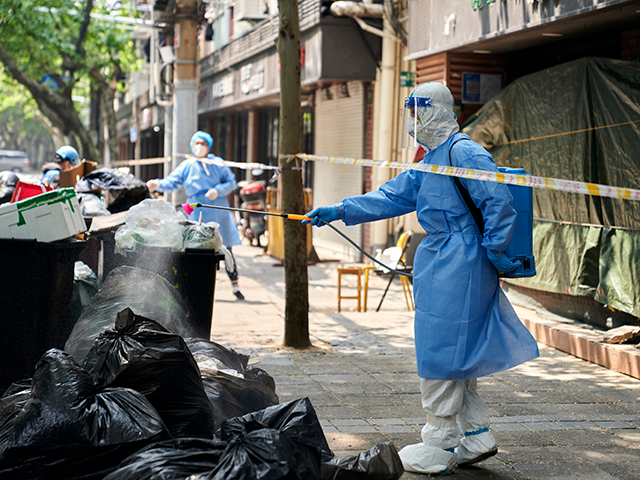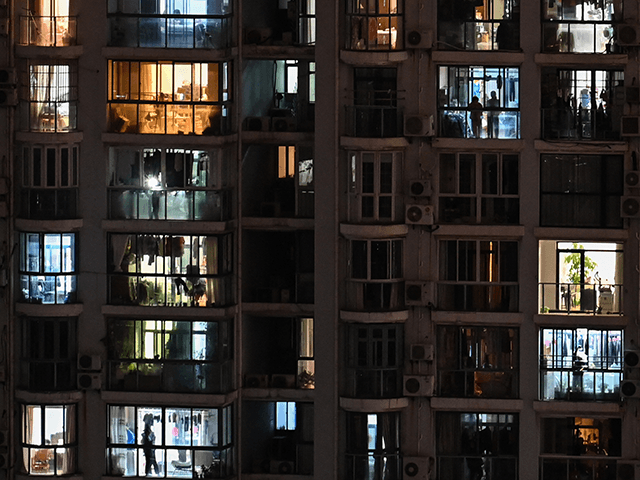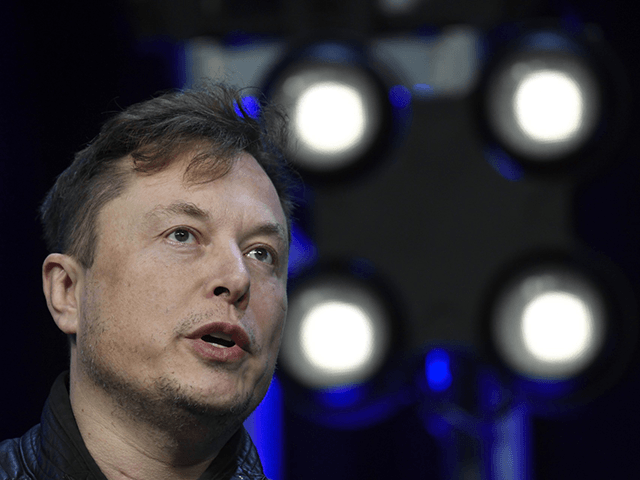Elon Musk’s Tesla electric vehicle company made a devil’s bargain with the Chinese Communist government to keep its Shanghai “Gigafactory” running by forcing its employees to live inside the plant, working harsh 12-hour, six-day shifts and camping on the factory floor in sleeping bags.
Chinese state media admitted on Tuesday it was all for nothing, as production at the Shanghai plant has been largely halted due to supply issues.
According to the state-run Global Times, the Gigafactory’s “closed-loop system” of requiring employees to live at the factory provided the labor needed to keep the production lines running, but coronavirus cases detected at Tesla suppliers choked off the supply of necessary components, specifically wire harnesses from a company called Aptiv.

An aerial view of Tesla Shanghai Gigafactory on March 29, 2021, in Shanghai, China. (Xiaolu Chu/Getty Images)
The Global Times article was filled with the usual effusive praise for hyper-competent Chinese officials who are supposedly doing everything possible to ensure the supply chain disruption is only “temporary,” and the usual press releases from corporate and government spokesmen expressing their complete confidence in each other, but buried in the fluff was a blunt admission that China’s increasingly deranged “dynamic zero-Covid” policies can kill just about any supply chain without warning:
A Shanghai-based company that supplies electronic components to Tesla, which declined to be identified, told the Global Times on Tuesday that for the safety of workers, it’s common practice in the whole industry chain that if COVID-19 infections are found, production within the chain has to be halted.
“So, we conduct nucleic acid tests and antibody tests for our workers every day to ensure production resumption,” said the company. Operations are normal now, although capacity has not fully restored.

Workers in protective gear disinfect a pile of garbage bags on Thursday, April 21, 2022, in Shanghai. (AP Photo/Nico de Rouge)
The “uncertainties and challenges for work resumption” under the dynamic zero-Covid regime are causing logistics fees to skyrocket by 500 percent or more, and the Global Times tacitly admitted employers are making ruthless demands of their workers for “accelerating work resumption to make up for lost production and drive the reduction of the whole industry chain.”

This photo taken on April 29, 2022 shows residential units during a Covid-19 lockdown in the Jing’an district in Shanghai. (HECTOR RETAMAL/AFP via Getty Images)
The bottom line was that Tesla on Wednesday announced the first exports from its Shanghai factory since it reopened under “closed loop” indentured servitude in April, a shipment of 4,767 electric cars to Slovenia — and effectively shut down production on the same day.
There is no end in sight for the misery of Shanghai, as restrictions were actually tightened even further on Wednesday, shutting down access to food and medical treatment for parts of the city. China’s always-untrustworthy official statistics claim new infections are declining, but the lockdown keeps getting ratcheted up.
The BBC obtained official notices from Communist officials describing a new program of “silent periods” for Shanghai, which are essentially localized hyper-lockdowns that will seal residents of some areas completely inside their homes, cutting all contact with the outside world and leaving them wholly dependent on government food deliveries.
“In some cases, people who have been removed from their homes and taken into central quarantine have been told to leave a key to their home, usually in the door, so officials can come in and disinfect the space. Some legal figures have questioned if this move is ‘constitutional,’” the BBC reported.

COMMENTS
Please let us know if you're having issues with commenting.